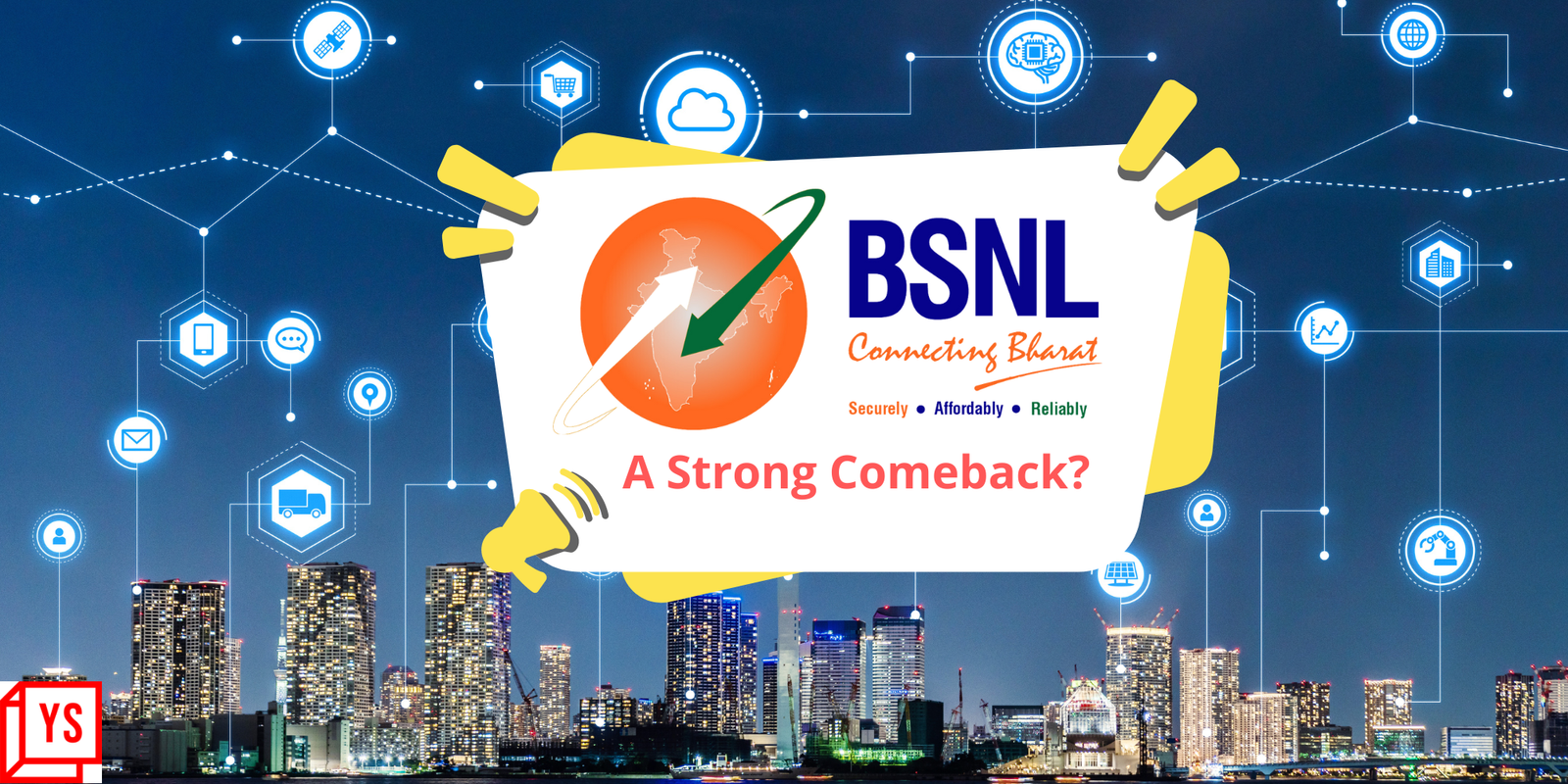[ad_1]
In India’s telecom industry, very few names carry as much historical significance as Bharat Sanchar Nigam Limited (BSNL).
Once a dominant player in the country’s telecommunications landscape, BSNL has seen its market share and reputation deteriorate over the years, overtaken by aggressive competition from private telecom giants like Reliance Jio, Airtel, and Vodafone Idea.
However, with recent efforts aimed at reviving the state-owned enterprise, BSNL’s comeback will attempt to reshape the future of India’s telecom sector. With its attractive pricing, the company is already making waves in this industry.
But can BSNL reclaim its position, or will it continue to struggle against intense competition? Let’s find out!
How BSNL’s market position declined over the years

BSNL, founded in 2000, was once the backbone of India’s telecom infrastructure. They used to provide landline and mobile services across the country, including rural areas where private players had little presence. However, in the past decade, BSNL has faced big challenges.
Despite its widespread network, BSNL struggled to keep up with rapid technological advancements, particularly in 4G and 5G networks. The rise of private operators like Reliance Jio, which introduced disruptive pricing and high-speed internet across the country, further pushed BSNL to the margins.
Jio’s aggressive rollout of 4G services in 2016 disrupted the entire telecom sector, attracting millions of new users. Meanwhile, BSNL’s 3G services were seen as outdated, and its mobile network suffered from poor customer experience in comparison to its competitors.
BSNL’s financial health also became a concern, with the company reporting yearly losses. In 2018-19, the company lost over Rs 14,000 crore, largely due to the absence of 4G services and low tariff rates because of fierce competition. Moreover, the company faced employee-related liabilities, further complicating its situation.
BSNL’s revival plans: Will it make a strong comeback?
Recognising the need for a transformation, BSNL has been actively working on a comeback strategy aimed at revitalising its services, modernising its infrastructure, and regaining market share. The revival plan primarily focuses on the following key aspects:
1. Investment in 4G and 5G networks
One of BSNL’s most critical challenges has been its inability to compete with private players in terms of 4G technology. However, the company is actively working to upgrade its network to 4G, a move that could significantly improve service quality.
In a bid to rejuvenate its market presence, BSNL has signed deals for 4G infrastructure expansion with companies like Tata Consultancy Services (TCS) and L&T Tech Services (LTTS). These partnerships will help BSNL roll out a high-quality 4G network, which is crucial for attracting new customers, especially in urban areas where high-speed internet is essential.
Moreover, BSNL has laid out plans to enter the 5G space. Though the timeline for the 5G rollout is still unclear, the company has shown strong intent to develop and integrate the next-gen technology, which would position it to compete with Jio, which has already launched 5G across the country.
2. Financial restructuring
BSNL faces challenges due to high debt and financial losses. To address this, the Indian government has approved a revival package of about Rs 89,000 crore for debt restructuring and capital infusion. This support aims to stabilise BSNL financially for modernisation and competition with private operators.
Additionally, BSNL is improving operational efficiency, and enhancing its networks and services to attract consumers. In fact, the company recorded 2.5 million new subscribers in August this year while private players are losing users which is a positive sign.
3. Rural focus and innovation
BSNL is also exploring to boost its competitiveness. For example, the company is trying to expand its broadband services in rural and underserved areas. These efforts are seen as key to maintaining BSNL’s relevance in India’s rural market, where it still has a strong presence.
Moreover, BSNL is working on innovations in sectors like the Internet of Things (IoT), and cloud services, which could provide a new revenue stream and enhance its value proposition in the digital economy.
Challenges ahead: The competitive landscape
Despite the strong comeback plans, BSNL faces a tough road ahead. The competition in India’s telecom industry is fierce, with Reliance Jio, Airtel, and Vodafone Idea all vying for market share. Jio, in particular, has built a strong foothold with its affordable data packages, 4G network, and aggressive customer acquisition strategies.
In addition, BSNL must address its internal challenges, such as the need for a more efficient workforce, improved customer service, and greater innovation in product offerings. The firm will also have to compete with the ever-changing regulatory landscape and the fast-paced evolution of telecom technology.
A long road to recovery
BSNL’s strong comeback is certainly an exciting prospect for India’s telecom industry. With the right investments in 4G and 5G technologies, BSNL has the potential to carve out a renewed role for itself in the market. However, the intense competition and the rapid pace of technological advancement mean that BSNL will need to be agile, innovative, and customer-focused to recover its position.
The road to recovery will be long, but with government support and a clear focus on modernisation, BSNL could once again become a key player in India’s telecom sector—if it can adapt to the changing market dynamics and meet the evolving needs of today’s digital consumer.
[ad_2]
Source link





